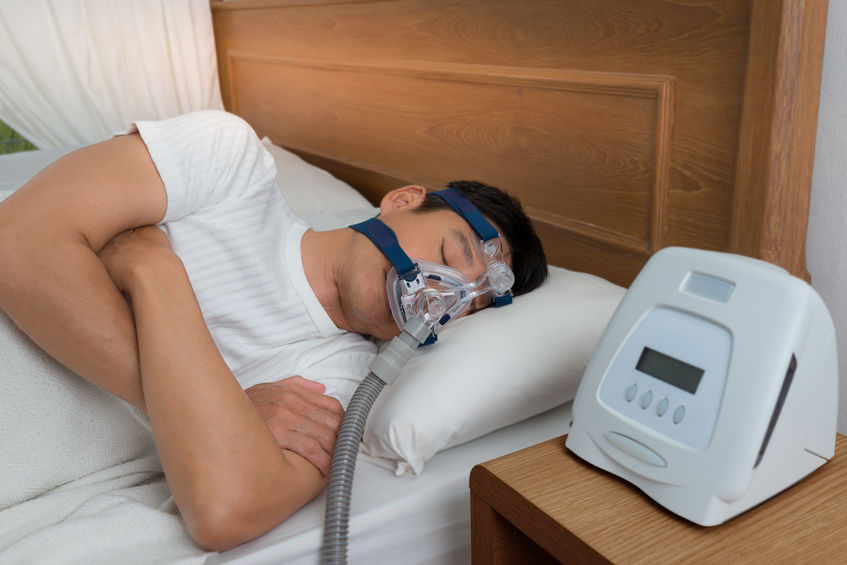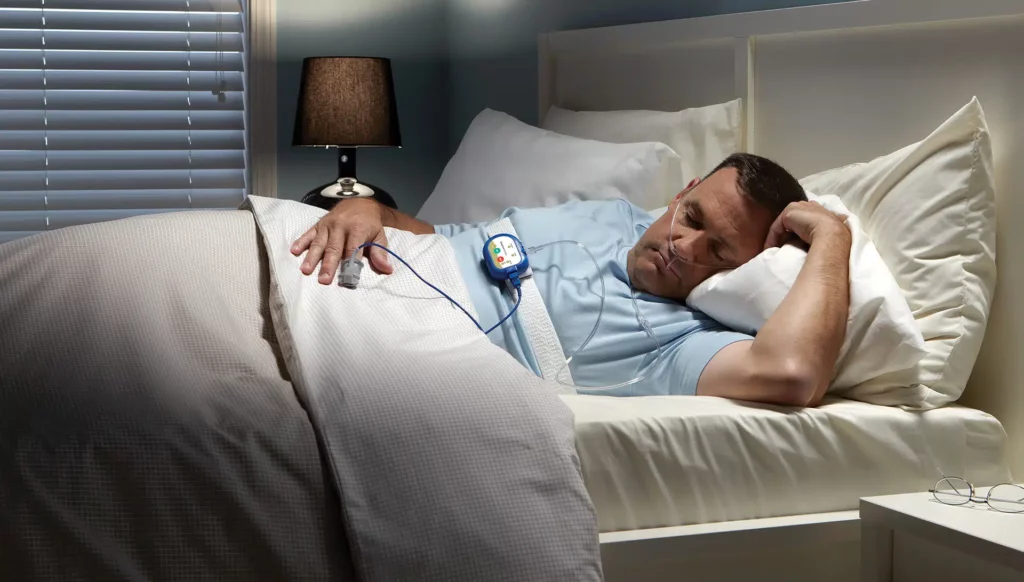What Is a Sleep Study and Why Is It Done in Canberra?
A sleep study, also known as polysomnography, monitors your body’s functions while you sleep to identify breathing and airway problems. The test tracks brain waves, oxygen levels, heart rate, breathing patterns, and body movements throughout the night.
Canberra Hospital’s Sleep Medicine service conducts these studies to diagnose several conditions affecting sleep quality:
- Sleep apnea – repeated pauses in breathing that disrupt sleep and reduce oxygen levels
- Severe snoring – loud breathing sounds that may indicate airway obstruction
- Narcolepsy – sudden episodes of extreme daytime sleepiness or unexpected sleep attacks
The Sleep Study Canberra service at Canberra Hospital specializes in diagnosing and treating sleep disorders related to breathing issues. Located in Building 1 across several levels, the facility provides comprehensive assessment and monitoring for patients experiencing symptoms that suggest sleep-disordered breathing. The service works closely with referring doctors to evaluate whether breathing problems during sleep are affecting your health and quality of life.
A sleep study in Canberra serves as the essential diagnostic foundation before specialists can recommend appropriate treatments. The data collected during overnight monitoring helps doctors assess the severity of your condition and determine the most effective management plan, which may include CPAP therapy or other tailored interventions.
How Can You Get Referred for a Sleep Study in Canberra?
To get a referral for a sleep study in Canberra, you need to contact your GP or medical practitioner first. The process starts when you talk to your doctor about symptoms such as chronic snoring, excessive daytime sleepiness, or observed breathing pauses during sleep. Your doctor will evaluate whether your condition requires further investigation by the Sleep Medicine service in Canberra.
Who Gets Referred?
The decision on who gets referred depends on how severe the symptoms are and how urgent the medical situation is. Patients with the following conditions are given higher priority for assessment:
- Severe daytime fatigue affecting work or safety
- Loud, disruptive snoring with breathing interruptions
- Suspected sleep apnea with cardiovascular risk factors
- Narcolepsy symptoms like sudden sleep attacks
What Happens After the Referral?
Once your GP submits the referral, you’ll be added to a waiting list. The Sleep Medicine service prioritizes cases based on how urgent they are clinically, rather than when they were referred. Patients with severe symptoms or significant health risks usually get earlier appointments. Those with less urgent conditions may have to wait longer as the service manages demand across Canberra’s population.
What Should Patients Expect When Scheduling Their Sleep Study?
Patients will receive confirmation of their appointment via letter or SMS once the Sleep Medicine service has scheduled their study. This notification will include important details such as the date, time, and location of the overnight monitoring session at Canberra Hospital.
Preparation Guidelines
The pre-study information packet will provide specific instructions on how to prepare for the sleep study. It is important for patients to follow these guidelines in order to ensure accurate results. The preparation guidelines include:
- Maintaining regular sleep routines in the days leading up to the appointment
- Avoiding caffeine or alcohol on the day of the study
Confirming Attendance
In order to secure their spot, patients must confirm their attendance for the sleep study. If they fail to respond, it may result in the appointment being offered to someone else on the waiting list.
What to Bring and When to Arrive
The communication sent to patients will also include instructions on what items they need to bring with them for the sleep study, as well as when they should arrive (typically in the evening). It is important for patients to follow these instructions in order to ensure a smooth process on the day of the study.
Activities During Monitoring Period
During the monitoring period, there may be certain activities that are permitted or prohibited. Patients should refer to the pre-study information packet for clarification on what they can and cannot do during this time.
Contacting Sleep Medicine Service
If patients have any questions about their scheduled appointment or need to reschedule due to illness or unavoidable circumstances, they can reach out directly to the Sleep Medicine service for assistance.
How Long Does the Actual Sleep Study Take?
At Canberra Hospital, sleep study sessions typically last for one full night. Patients arrive in the evening and leave the next morning. This overnight monitoring period usually lasts around 8-10 hours, which allows technicians to observe multiple complete sleep cycles.
Why Does the Study Require an Entire Night?
Sleep disorders show up differently during various sleep stages—light sleep, deep sleep, and REM sleep. To accurately analyze your sleep patterns, we need to capture these natural transitions just like they would happen in your own home. Short daytime tests simply can’t recreate the conditions necessary for an accurate diagnosis.
What Happens During the Sleep Study?
During the monitoring period, specialized equipment records:
- Brain wave activity (EEG)
- Eye movements
- Heart rate and rhythm
- Oxygen levels in your blood
- Breathing patterns and airflow
- Leg movements
- Body position changes
Trained sleep technicians keep an eye on this data throughout the night, making sure that the recordings are of good quality while you rest in a private room designed to promote comfortable sleep despite the monitoring equipment.
What Do Patients Need to Bring to Their Sleep Study Appointment?
Preparing for a sleep study requires specific documentation and personal items. Patients must bring their Medicare card as proof of eligibility for the free service, along with any GP correspondence or referral letters related to their sleep concerns. Those holding health care cards or concession cards should include these for administrative purposes.
A comprehensive medication list forms a critical part of the preparation. This list should detail all current prescriptions, over-the-counter medications, vitamins, and supplements, as these can affect sleep patterns and study results. Patients with private health insurance should bring their insurance card, even though the service is Medicare-funded.
Personal comfort items enhance the overnight experience. Reading glasses allow patients to complete paperwork or relax before the monitoring begins. Patients may also want to bring:
- Comfortable sleepwear
- Toiletries for morning preparation
- Any personal items that aid their normal bedtime routine

Where Is the Sleep Study Conducted in Canberra?
The sleep study in Canberra is conducted at the Canberra Hospital, specifically in Building 1, where the Sleep Medicine service is located across multiple levels. The facility is designed to provide a comfortable environment that closely resembles home sleeping conditions, with dedicated rooms for each patient.
The Sleep Medicine service offers:
- Private rooms with comfortable beds for overnight monitoring
- Climate-controlled spaces to ensure optimal sleeping temperature
- Bathroom facilities accessible throughout the night
- Staff monitoring stations positioned nearby for patient safety
- Secure storage areas for personal belongings during the study
With its multi-level setup, the service can accommodate several patients at the same time while ensuring privacy and quietness—both crucial factors for accurate sleep monitoring. Click here to get more about Top 5 Questions Patients Ask Before Booking a Sleep Test in Melbourne.
Is There a Cost Associated with Sleep Studies in Canberra?
The cost of sleep study Canberra services is free for patients holding a Medicare card or Asylum Seeker card. This makes diagnostic sleep testing accessible to most Australian residents without financial burden.
Patients without Medicare coverage may face fees for the service. The exact amount varies depending on individual circumstances and the specific tests required. For detailed information about potential costs, patients can refer to the patient fees and billing information provided by the relevant health service.
Private health insurance can influence out-of-pocket expenses:
- Patients should bring their private health insurance card to appointments
- Insurance may cover or reduce fees for non-Medicare holders
- Coverage levels depend on individual policy details and waiting periods
Those uncertain about potential costs should contact the Sleep Medicine service directly before their appointment to clarify their specific situation and any applicable fees.
What Happens After the Sleep Study?
After your sleep study, a thorough evaluation of the data collected during your overnight monitoring will take place. Sleep specialists will examine your breathing patterns, oxygen levels, and sleep structure to identify any disorders that require treatment.
If sleep apnea is diagnosed, you may be given a trial of CPAP therapy to find out the most effective pressure settings for you. This trial will help determine if continuous positive airway pressure therapy improves your sleep quality and reduces symptoms.
You will have a follow-up appointment with a sleep physician to:
- Review your detailed sleep study results
- Discuss the diagnosis and severity of any detected conditions
- Explore treatment options that are specific to your situation
- Answer any questions about CPAP equipment or alternative therapies
- Create a plan for ongoing management
The time between your study and follow-up consultation can vary depending on appointment availability and the complexity of your case. Patients will be notified about their appointment through the same channels used for initial scheduling, which is usually by letter or SMS.

